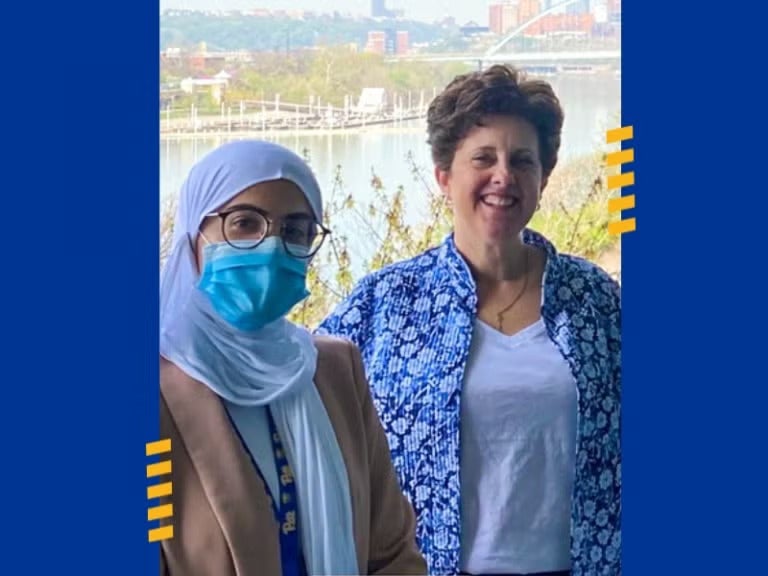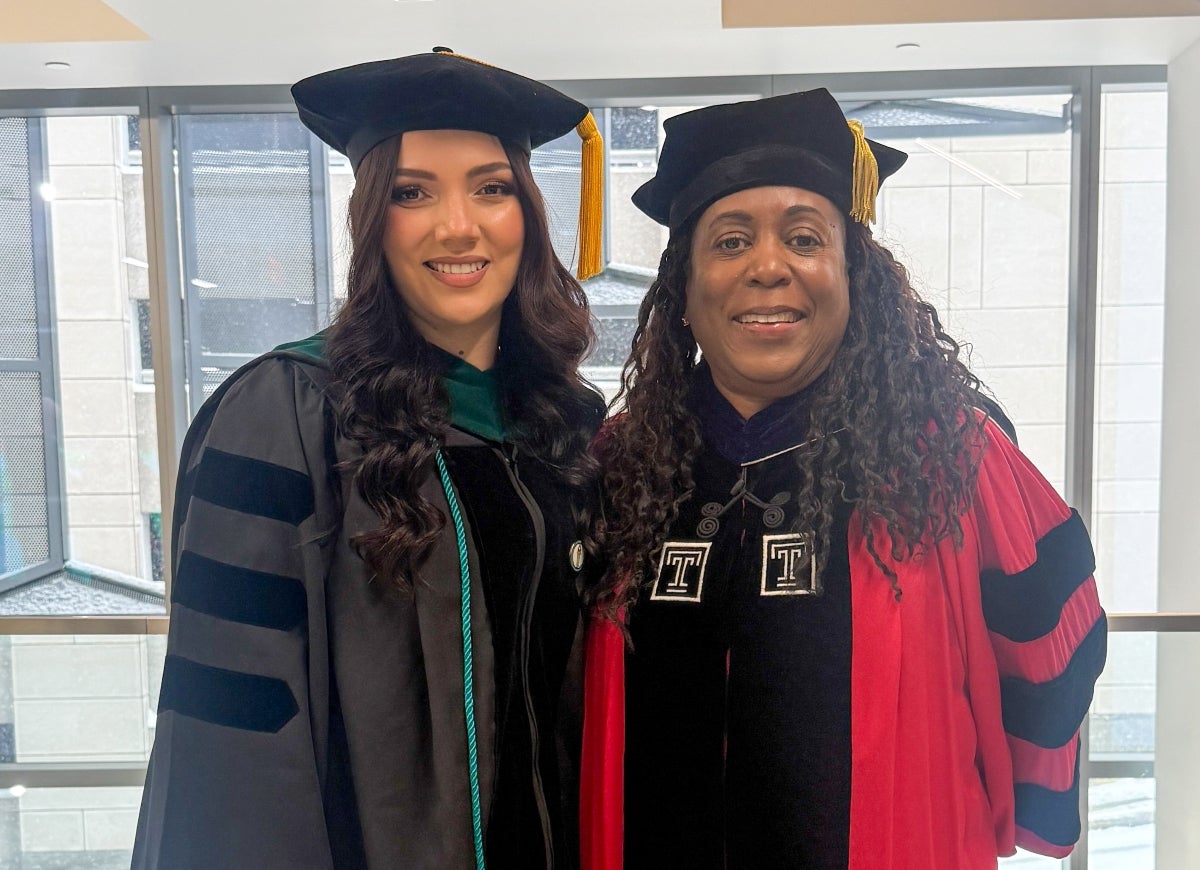- Info For
- Academics
- All Programs
- By Discipline
- Athletic Training
- Audiology
- Chiropractic
- Communication Science
- Counseling
- Emergency Medicine
- Health Informatics
- Nutrition
- Occupational Therapy
- Physical Therapy
- Physician Assistant Studies
- Prosthetics and Orthotics
- Rehabilitation Science
- Rehabilitation Technology
- Speech-Language Pathology
- Sports Science
- Sports Medicine
- Tuition and Scholarships
- Newsroom
- Community
- Research
- Events
- Request for Information
Newsroom

Gain Experience in Sports Science on and off the Field
Second-year Sports Science student Anna Michalski shares her experience in the program and working with the Pitt women's soccer team for her internship.
Read More
Rae Mancilla shares how SHRS is a leader in the online learning space
Rae Mancilla, interim executive director of the SHRS Office of Online Learning, shares how she discovered the world of instructional design, and how SHRS' online capabilities have been a model for other schools.
Read More
Master of Science in Occupational Therapy Alumni Spotlight: Meet Tahani Almutairi
Tahani Almutairi (MSOT ’23), who lives in Riyadh, Saudi Arabia, shares her experience as a student who graduated from the Master of Science in Occupational Therapy program.
Read More
Challenges, Choices, Confidence: The Journey of Hybrid DPT Student Elena Luna-Vazquez
Elena Luna-Vazquez (DPT '24) from Texas is a busy mom who just graduated from the University of Pittsburgh Doctor of Physical Therapy program. Learn more about her experience in the DPT hybrid option and her journey to becoming a new leader in the profession!
Read More
Faculty Spotlight: Britney Beatrice Discusses Research Opportunities with Pitt Nutrition Programs
Britney Beatrice is both an instructor for and alumna of SHRS. Beatrice shares her research experience both as a former student and presently as faculty.
Read MoreSHRS IN THE NEWS
-
Xanthan Gum: Harmless Food Additive or Digestion Nightmare?April 1, 2025 | CNET
-
Meet 4 graduate students who took unconventional paths to PittMarch 24, 2025 | Pittwire
-
3 ways Pitt researchers are making strides in assistive technologyFebruary 17, 2025 | Pittwire
-
Plant-based pitfalls: When can the vegan diet go wrong?February 8, 2025 | Pittsburgh Post-Gazette
-
Running in the cold? Here's why you should think twiceJanuary 22, 2025 | Pittsburgh Post-Gazette
Browse by Collection
SHRS RESOURCES:
Pitt Passport required.

It's Possible at Pitt





